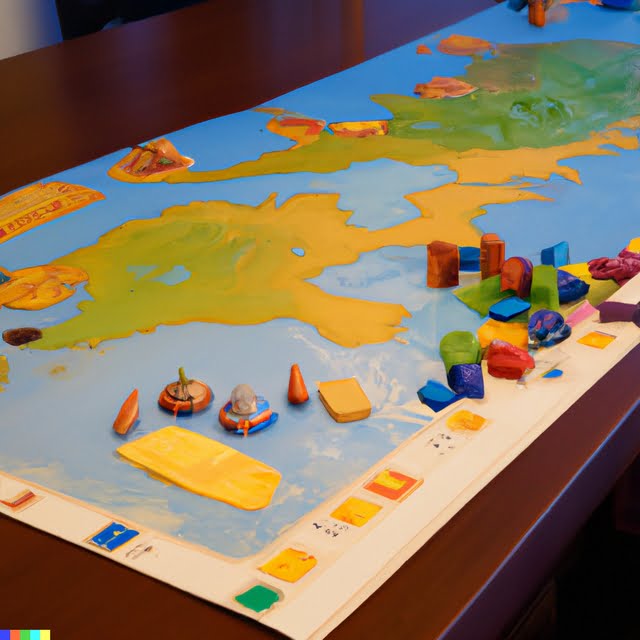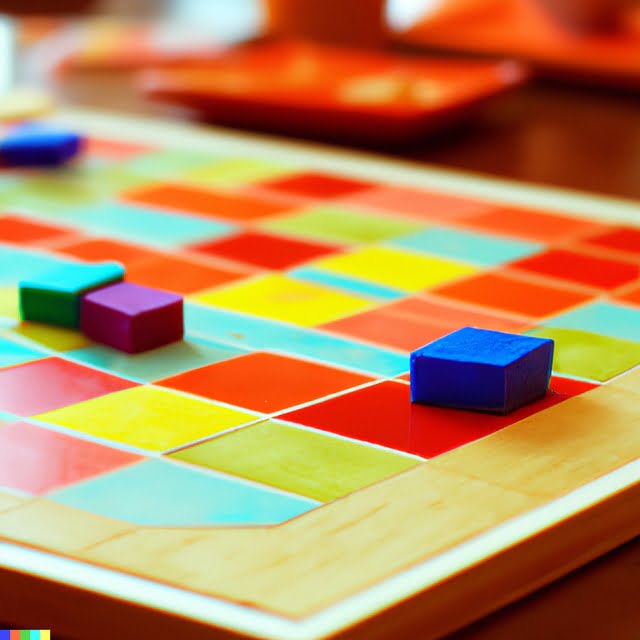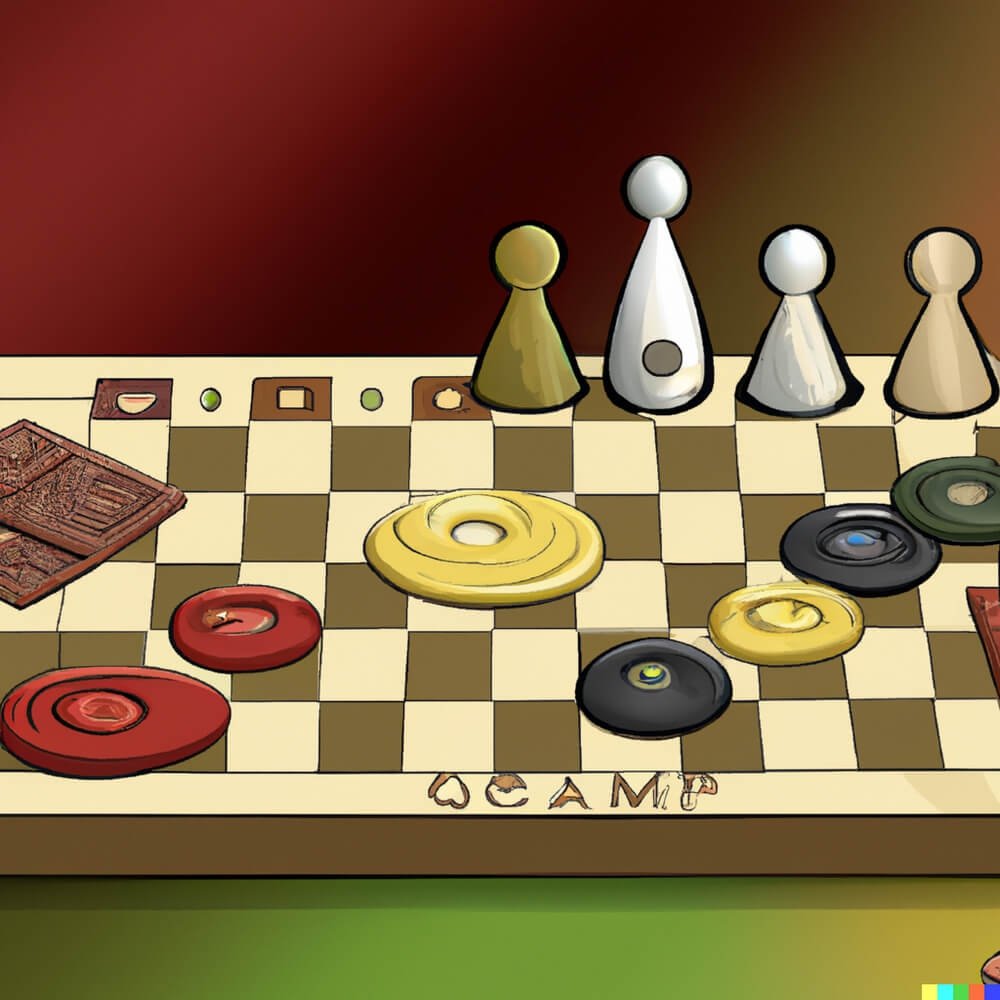Board games have long been a staple in family gatherings and game nights, but they are not just for adults and older children. In recent years, there has been a surge of beginner board games specifically designed for toddlers. These games provide a fun and interactive way to introduce young children to the world of gaming while also promoting various aspects of their development.
Beginner board games offer numerous cognitive, social, and emotional benefits for toddlers. As they play these games, little ones develop crucial skills such as problem-solving, critical thinking, memory retention, and decision-making abilities. The structured gameplay helps improve their attention span and concentration while also teaching them important concepts like colors, shapes, numbers, and letters.
Additionally, board games provide an excellent opportunity for toddlers to socialize and interact with others. By participating in turn-taking, sharing resources, cooperating with teammates or opponents, and following rules, they learn essential social skills that will benefit them throughout their lives. Furthermore, playing board games together fosters bonding between parents/caregivers and children as they spend quality time engaging in a shared activity.
In the next sections of this article, we will delve into the benefits of board games for toddlers in more detail. We will also explore factors to consider when selecting suitable games for your little one’s age group and learning objectives. Lastly, we will recommend several top beginner board games that are highly praised by parents and experts alike. So let’s dive in and discover the exciting world of beginner board games for toddlers.
Benefits of board games for toddlers
Cognitive Development
Board games are excellent tools for promoting cognitive development in toddlers. As they engage in gameplay, toddlers develop important cognitive skills such as problem-solving, critical thinking, and decision-making. Through observing the game board and the cards or pieces involved, toddlers learn to analyze different options and make strategic choices.
They also enhance their memory skills by remembering rules, instructions, and patterns throughout the game. Additionally, board games provide opportunities for toddlers to practice essential early math skills such as counting, number recognition, and basic arithmetic.
Social Development
Playing board games with peers or family members can have a significant impact on a toddler’s social development. Board games naturally require turn-taking and encourage sharing among players. Toddlers learn patience as they wait for their turn, and they develop the ability to recognize others’ needs and emotions while playing cooperatively.
Furthermore, engaging in friendly competition helps toddlers understand concepts such as winning and losing graciously, good sportsmanship, and fair play. By interacting with others during gameplay, toddlers also improve their verbal communication skills as they articulate thoughts, express ideas, and engage in discussions about strategy or gameplay.
Emotional Development
Board games provide an opportunity for toddlers to explore various emotional experiences in a safe and controlled environment. As they encounter different situations during gameplay (such as facing challenges or setbacks), toddlers learn to manage their emotions effectively by developing resilience, patience, flexibility, and perseverance.
They experience both excitement when making progress or achieving goals within the game and disappointment when facing obstacles or setbacks-both of which contribute to emotional growth. Furthermore, playing board games with caregivers or peers promotes bonding experiences that foster a sense of security and trust within relationships.
Factors to consider when choosing board games for toddlers
When choosing board games for toddlers, it is important to consider several factors to ensure that the game is appropriate for their age and developmental stage. The following are three key factors to keep in mind: age appropriateness, complexity level, and learning objectives.
Age appropriateness is a crucial factor when selecting board games for toddlers. Different games are designed with specific age ranges in mind, taking into account their cognitive abilities and attention span.
It is important to choose a game that suits the toddler’s age, as it allows them to fully engage and understand the rules and mechanics of the game. For example, younger toddlers may benefit from simple matching or memory games, while older toddlers can handle more complex games that involve counting or basic strategy.
The complexity level of a board game should also be considered. Board games for toddlers should be relatively simple and easy to understand. Overly complex rules can frustrate young children and discourage their participation. Look for games with clear instructions and straightforward gameplay that can be easily grasped by toddlers.
Learning objectives play a significant role in selecting board games for toddlers. Parents can use this opportunity to enhance various skills such as color recognition, fine motor development, shape recognition, problem-solving, counting, or social skills. Consider what educational goals you would like to target while engaging your toddler in gameplay.
| Factors | Description |
|---|---|
| Age Appropriateness | Selecting a game that suits the toddler’s age range |
| Complexity Level | Choosing a game with clear instructions and straightforward gameplay |
| Learning Objectives | Selecting a game that targets specific educational goals such as color recognition or problem-solving |
Top 5 beginner board games for toddlers
One of the best ways to engage toddlers in learning and fun is through beginner board games. These games are specifically designed to introduce young children to the concept of playing games while also providing educational benefits. Here, we will review five popular and highly recommended beginner board games for toddlers, highlighting their features, educational value, and overall enjoyment.
1. “First Orchard”: This cooperative game is perfect for toddlers aged two and up. It promotes color recognition, counting skills, and turn-taking. The game involves collecting fruit from the orchard before a crow reaches it. With its simple rules and adorable wooden pieces, “First Orchard” encourages teamwork and basic problem-solving skills.
2. “Sneaky Snacky Squirrel”: Designed for toddlers aged three and up, this game focuses on fine motor skills development and color recognition. Players use squirrel-shaped tweezers to pick up acorns of different colors and place them into their matching colored holes on the game board. “Sneaky Snacky Squirrel” enhances hand-eye coordination, counting abilities, and strategic thinking.
3. “Hungry Pelican”: Recommended for children aged three years old and above, this game combines feeding a hungry pelican with learning shapes identification. Toddlers use a fishing rod with a magnetic bait to catch colorful fish cards that correspond to specific shapes on the pelican’s mouth. “Hungry Pelican” helps improve shape recognition, hand-eye coordination, and concentration.
4. “Seek-a-Boo.”: Suitable for toddlers from 18 months onwards, this memory matching game introduces vocabulary building through picture-word association. The deck consists of large cards featuring objects that children need to find around them as they develop visual discrimination skills and expand their language abilities.
5. “Spot It Jr. Animals”: This fast-paced observation game is ideal for kids aged four years old and above but can be enjoyed by younger toddlers as well with adult guidance. Players need to spot and match animals between cards, promoting visual perception, attention, and logical thinking. “Spot It Jr. Animals” is compact, making it perfect for on-the-go entertainment.
Each of these beginner board games provides unique educational benefits while offering enjoyable gameplay for toddlers. From color recognition to memory skills, these games aid in cognitive development and provide opportunities for social interaction with friends and family members. Including these top choices in your collection will offer hours of fun learning experiences for your toddler.
The best educational board games for toddlers
Educational board games are a fantastic way to engage toddlers in fun and interactive learning experiences. These games are specifically designed to target various skills such as counting, colors, shapes, and problem-solving, while also promoting early learning and development. Here are some of the best educational board games for toddlers that parents can consider:
- Counting Fun Game: This game aims to help toddlers develop their counting skills in a playful manner. It usually involves colorful dice or cards with numbers on them, and the child is encouraged to count objects or move their game piece accordingly. Counting Fun Games not only teach numerical concepts but also improve hand-eye coordination and attention span.
- Shape Match Game: This game focuses on helping toddlers recognize different shapes and improve their shape sorting abilities. Toddlers are often given various shaped cards or puzzle pieces, and they have to match them with corresponding shapes on a board or mat. Shape Match Games enhance cognitive skills, spatial awareness, and problem-solving abilities.
- Color Recognition Game: These games aim to teach toddlers about different colors through engaging activities. They usually involve colored cards or boards where children have to match objects with the correct colors or sort objects based on their color. Color Recognition Games enhance visual perception, concentration, and language development.
- Problem-Solving Puzzle Game: This type of game helps toddlers develop critical thinking and problem-solving skills from an early age. They typically consist of puzzles that require toddlers to arrange or align specific pieces to complete a picture or solve a simple problem. Problem-Solving Puzzle Games improve logical reasoning, fine motor skills, and creativity.
By introducing these educational board games into your toddler’s playtime routine, you provide them with an opportunity to learn through active engagement and enjoyment. These games not only facilitate skill development but also promote bonding between parents and children as they participate together in learning activities.
Socializing through board games
Board games not only provide entertainment and educational benefits for toddlers but also play a crucial role in developing their social skills. By engaging in board games, toddlers have the opportunity to learn important concepts such as turn-taking, sharing, and teamwork. These skills are essential for their overall development and success in future social interactions.
One game that encourages positive interactions and cooperation is “Animal Upon Animal” by HABA. In this game, toddlers work together to stack wooden animal figures on top of each other without causing them to tumble over. This cooperative aspect of the game requires them to take turns and communicate effectively with each other to achieve a common goal. As they play, toddlers learn the importance of cooperation, as well as patience and support for others.
Another great game that fosters social skills is “The Sneaky, Snacky Squirrel Game”. In this game, children take turns spinning a spinner and using squirrel-shaped tweezers to collect acorns. The twist is that players can also steal acorns from each other. This game teaches turn-taking and sharing, while also introducing the concept of fairness and dealing with disappointments when someone takes their acorns away.
Additionally, “Race to the Treasure.” is a cooperative board game that encourages teamwork while promoting problem-solving skills. In this game, players work together to create a path to reach the treasure before the ogre does. Through collaboration and communication, toddlers learn how to strategize together and share ideas in order to achieve victory as a team.
Interactive and sensory board games for toddlers
Interactive and sensory board games are a fantastic way to engage toddlers in hands-on learning experiences that stimulate their senses. These types of board games go beyond simply moving pieces around a game board and often incorporate elements like tactile materials, sounds, and movement to create a truly immersive and interactive playtime for young children.
One example of an interactive and sensory-based board game is “The Memory Game.” This game typically consists of pairs of cards with different pictures or symbols on them. Toddlers take turns flipping over two cards at a time, trying to find matching pairs. The tactile nature of turning over the cards and feeling the texture adds a sensory element, while the act of remembering where each picture is located sharpens their cognitive skills.
Another popular choice for interactive and sensory board games is “The Listening Game.” This game involves sound recognition, where toddlers listen to various sounds (such as animal noises or musical instruments) played from audio cards or a speaker. They then need to identify which card matches the sound they heard, teaching them about cause-and-effect relationships and enhancing their auditory skills.
One more example is “The Feelings Board Game.” This game uses emotion cards with different facial expressions. Toddlers roll a dice or spin a spinner to determine which emotion they need to imitate. Through role-playing, they learn about emotions and develop social-emotional skills by expressing themselves in a safe environment.
Interactive and sensory board games provide engaging opportunities for toddlers to explore their senses while developing essential cognitive abilities such as memory, problem-solving, and critical thinking. These types of games also encourage creativity through imaginative play and can help enhance fine motor skills by incorporating activities like sorting objects or manipulating small pieces.
When selecting interactive and sensory board games for toddlers, it’s crucial to consider age appropriateness, safety features (e.g., non-toxic materials), durability (as toddlers tend to be rough with toys), and the specific sensory experiences the game offers. Parents can also consider games that incorporate multiple senses, such as touch, hearing, and sight, to provide a well-rounded learning experience.
Introducing interactive and sensory board games into a toddler’s playtime routine allows them to have fun while actively engaging with their environment and learning valuable skills. By including these types of games in their collection, parents can enhance their child’s development while creating meaningful bonding experiences through shared play.
DIY board games for toddlers
Creating a DIY Board Game
One of the great advantages of board games for toddlers is the opportunity to customize them to suit their individual needs and interests. Creating a DIY board game at home can be a fun and engaging activity for both parents and toddlers.
Not only does it offer a cost-effective alternative, but it also allows for personalized gameplay experiences that align with specific learning goals. Here are some creative ideas and step-by-step instructions on how to create simple DIY board games for toddlers using everyday materials.
Choose a Theme
The first step in creating a DIY board game is selecting an engaging theme that will capture your toddler’s interest. Consider their current favorite characters, animals, or activities when deciding on the theme. For example, if your toddler loves animals, you could create a zoo-themed board game where they have to navigate through different animal habitats.
Design the Gameboard
Start by designing the gameboard using a large piece of cardboard or poster board. Use markers or paints to draw the path or spaces on the board, making sure they are age-appropriate and easy to understand for your toddler. You can incorporate colorful shapes or numbers to add an educational element to the game.
Create Game Pieces
Next, gather small objects or toys that can serve as game pieces. These can be anything from figurines or wooden blocks to buttons or coins. Encourage your toddler to help decorate and personalize their own game pieces using stickers, markers, or paint.
Add Cards and Challenges
To make the game more exciting, consider adding cards with challenges or prompts throughout the board. These cards can be made by cutting index cards into smaller sizes and writing simple instructions such as “Hop like a bunny” or “Find three red objects in the room.” This will encourage physical activity, problem-solving, and critical thinking.
Play and Modify
Once the DIY board game is complete, invite your toddler to play and explore their creation. The great thing about homemade board games is that you can modify the rules or add new elements as you go along. This flexibility allows for continuous adaptation to your toddler’s evolving skills and interests.
Creating a DIY board game for your toddler not only provides a unique bonding experience between parent and child but also promotes creativity, critical thinking, and fine motor skills development. By involving your toddler in the process of designing and personalizing their own game, you are empowering them to take ownership of their learning journey while having fun at the same time.
Conclusion
In conclusion, board games for toddlers offer numerous cognitive, social, and emotional benefits that contribute to their overall development. These games provide an engaging and interactive way for toddlers to learn important skills such as counting, color recognition, problem-solving, and turn-taking. By introducing board games at an early age, parents can promote early learning and create enjoyable bonding experiences with their little ones.
When choosing board games for toddlers, it is crucial to consider factors such as age appropriateness, complexity level, and learning objectives. Understanding these factors will ensure that the selected games are suitable for the child’s developmental stage and align with their specific educational goals.
Parents should also take into account the different types of board games available, whether it be interactive and sensory-based options or do-it-yourself creations using everyday materials. By exploring the variety of options, parents can find board games that cater to their child’s interests and individual learning style.
Not only do board games help toddlers acquire essential skills and knowledge, but they also foster social interactions and cooperation. Games that encourage turn-taking, sharing, and teamwork teach children how to communicate effectively and work together towards a common goal. These social skills are crucial for their future success in school and beyond. Therefore, introducing board games as a valuable learning activity not only stimulates their intellect but also nurtures their ability to interact positively with others.
Ultimately, by incorporating beginner board games into a toddler’s routine, parents have the opportunity to foster early development in a playful and engaging way. Through these activities, young children can embark on a lifelong journey of intellectual curiosity while creating lasting memories with their loved ones. So why wait? Start exploring the world of beginner board games for toddlers today and watch your child thrive both academically and socially.

I love playing all kinds of games – from classics like Monopoly to modern favourites like Ticket to Ride.
I created this blog as a way to share my love of board games with others, and provide information on the latest releases and news in the industry.





